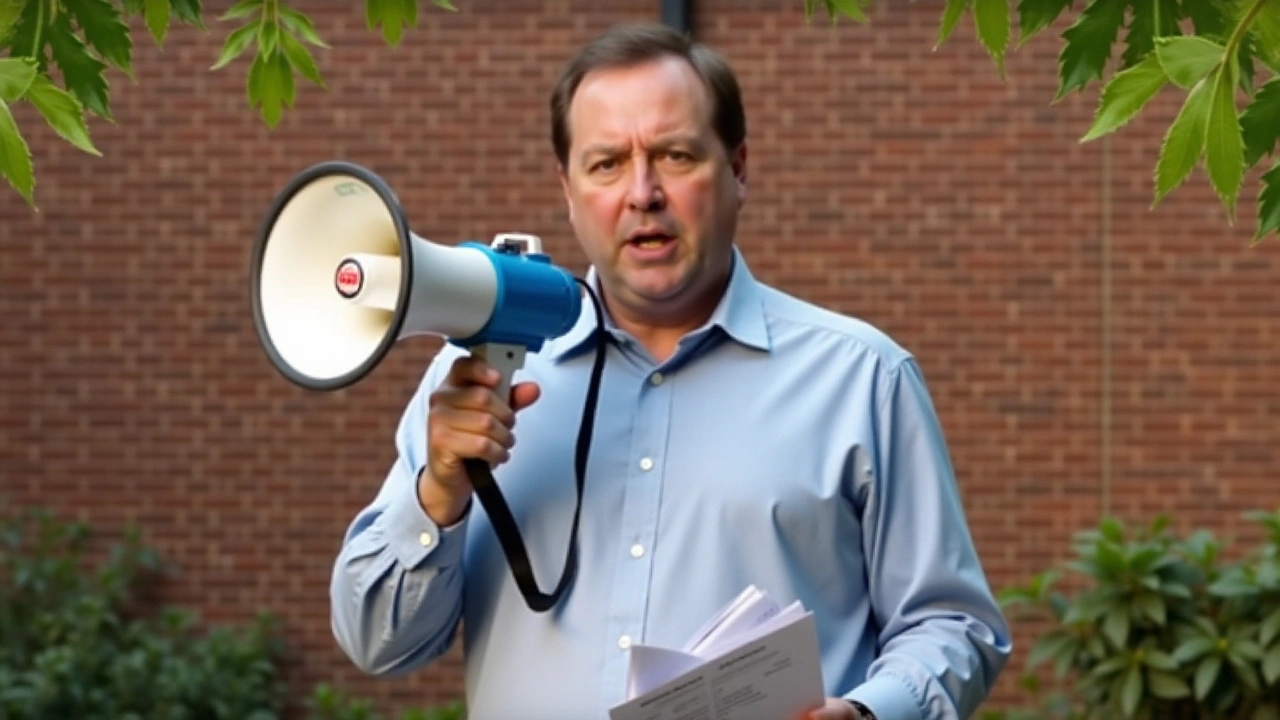Swedish Justice Under Scrutiny as Suspects in Salwan Momika Case Freed Amid Heated Debate
1 Feb, 2025Sweden finds itself at a crossroads as the investigation into the murder of Salwan Momika takes a contentious turn, casting a spotlight on the nation’s commitment to justice and free speech. Once a controversial figure known for setting the Quran ablaze in public demonstrations, 38-year-old Iraqi refugee Salwan Momika's life came to an abrupt end with his murder in Södertälje, south of Stockholm. The incident, which unfolded on a grim January evening, has unleashed a cascade of questions and uncertainty, not only about Momika's life but also about the wider implications of his death on Swedish society.
A Shocking Turn of Events
The immediate aftermath of Momika's brutal killing saw Swedish authorities detain five suspects, hoping to unravel the complexities behind the murder. Yet, Prosecutor Rasmus Öhman's decision to release them due to insufficient evidence has thrown the investigation into question. "I see no reason to keep these people under arrest," Öhman asserted, pointing to weakening suspicions and a lack of concrete proof. This unexpected release has left many wondering about the effectiveness of the justice system, raising concerns over how this high-profile case is being handled. As the investigation remains open, Swedish law enforcement now faces mounting pressure to present solid evidence and clarity.
The Man at the Center of Controversy
Salwan Momika was no stranger to controversy. Known globally for his provocative act of Quran burning, Momika's actions ignited international ire. Driven by his past experiences and his transition from an ethnic Assyrian Christian to a refugee fleeing sectarian violence, Momika sought refuge in Germany before making his way to Sweden in 2018. It was here that his demonstrations against Islamic texts drew a sharp dividing line between free expression and incitement of hatred. Swedish courts were in the process of weighing these charges against him when his life was tragically cut short, leaving the world to ponder the fine balance between freedom and responsibility.

Repercussions of a High-Profile Murder
Momika's killing reverberated far beyond Sweden's borders, making waves in diplomatic circles. Prime Minister Ulf Kristersson labeled the incident "highly dramatic," reflecting concerns over national security and the potential involvement of foreign agents in Swedish affairs. Such suspicions were not without precedent; the Iranian Supreme Leader, Ali Khamenei, had previously denounced Momika's actions, suggesting that desecrators of the Quran should face "the most severe punishment." As the notion of external influence looms large, the investigation continues against a backdrop of geopolitical tension. Sweden's elevated national terrorism alert, prompted by incidents linked to Momika's actions, including violent protests at its embassy in Baghdad, underscores the gravity of the situation.
A Debate over Free Speech and Security
As Swedish society grapples with the implications of Momika's death, the debate over free speech intensifies. On one hand, many argue that the right to express controversial viewpoints is sacrosanct and integral to democracy. On the other, critics warn against the dangers of unfettered expression, especially when it borders on inciting hatred. In Momika's case, his actions were deemed so incendiary that they invoked a swift and violent response, culminating in a national tragedy. This murder now serves as a stark reminder of the challenges democracies face in protecting the right to free speech while ensuring public safety and cohesion.

Momika's Legacy and Ongoing Investigations
Even in death, Salwan Momika continues to shape public discourse, challenging Sweden to deep introspection about its values and security. As investigators dig deeper into his murder, the absence of clear leads poses a conundrum, leaving gaps that have sparked speculation about hidden motives and missed opportunities. In the meantime, the Swedish Security Service (Säpo) has become involved, given the potential international dimensions of the case. With state-sponsored terrorism not ruled out, authorities must navigate these waters with caution and decisiveness.
The implications of Momika's case have prompted activists, legal experts, and citizens to scrutinize Sweden's judicial and immigration policies. As discussions unfold, they highlight deficiencies in the system, including how cases of political asylum seekers involved in controversial acts are managed and protected. How Sweden addresses these challenges will set precedents, not just domestically but globally, as countries worldwide struggle with similar issues of speech and security in a rapidly changing landscape.
As the nation waits for answers and justice for Momika, the broader implications of his death mandate a re-examination of laws and societal values. The coming months will be critical as Sweden endeavors to uphold its democratic foundations, balancing the delicate line between national security and individual freedoms in an interconnected world.

 by
by